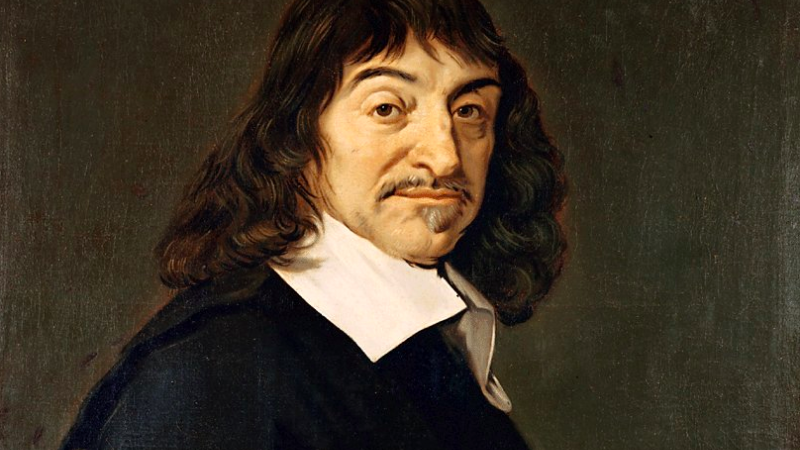From the Classroom: Rene Descartes: Man of Math and God, by Student Vera Swem

René Descartes: Man of Math and God
By Vera Swem
René Descartes was a mathematician and philosopher who lived during the 1600s in France. He was born in 1596 in the Touraine region of France, where his father was an educated lawyer. His mother died in childbirth, so he was mostly raised by his grandmother. The Protestant Reformation had recently occurred in Europe 50 years before his birth. Descartes is most famous for connecting two fields of math together, geometry and algebra. He also spent much of his life arguing and writing about the existence of man in a world created by God.
A Christian who wasn’t afraid to ask hard questions about God and man, Descartes was part of a philosophical movement called Continental Rationalism, which was an attempt to understand the connection between the human mind and reality, without relying solely on the Bible. His most famous book was the Principia Philosophia. Descartes wanted to find knowledge that was absolutely certain. He based his solution to this problem on the idea of “Cogito, ergo sum.” (translation: “I think, therefore I am.”) In other words, even if Descartes could not be certain about anything else, he could at least be sure that he was thinking. As a thinking being must exist, Descartes’ thoughts proved his existence.
Descartes’ work began when he wondered whether human existence might just be a trick played by an “evil genius” or powerful demon. This is similar to the 1990s movie, The Matrix, a dystopian futuristic movie where humans are enslaved by computers and kept in a dream-like state. Their dreams seem to be reality, but in fact they are not. Beyond that, he felt that his philosophy extended to our belief that there was a God. “Descartes believed that only a real, existing God could have caused us to have that idea.”1
Aside from his work in philosophy, he also was famous for his work in mathematics and science. In the field of mathematics, René Descartes developed the coordinate system for graphing geometric shapes on an axis, allowing geometric shapes to be described by algebraic equations. We still use this system today in algebra and geometry. Today this system of graphing is foundational for computers, engineering, astronomy, and many scientific fields.
Descartes’ work in philosophy was very influential in the centuries after he wrote his book. He brought up many problems, but most he left unsolved. René Descartes was a very important historical figure who helped make higher-level mathematics what it is today.
Works Referenced:
Frame, John M. A History of Western Philosophy and Theology (New Jersey: P&R Publishing, 2015), p. 180.
“René Descartes.” Stanford Encyclopedia of Philosophy. Center for the Study of Language and Information, Stanford University. 2016. Webpage. December 10, 2019.
Vera Swem is in grade 7 and lives as an ex-pat in Shanghai, China, with her family. She loves soccer and playing guitar, but most days when she has free time you’ll find her reading a good book!
In Algebra 1, students learn more than simply math concepts—They learn about the important mathemeticians responsible for modern math. One subject students are given the option to write about is the philosopher and mathematician, René Descartes, father of The Cartesian coordinate system. He is also remembered for the expression, “Cogito, ergo sum.” The following is a synopsis of his life, work, and beliefs about God written by Vera Swem.






